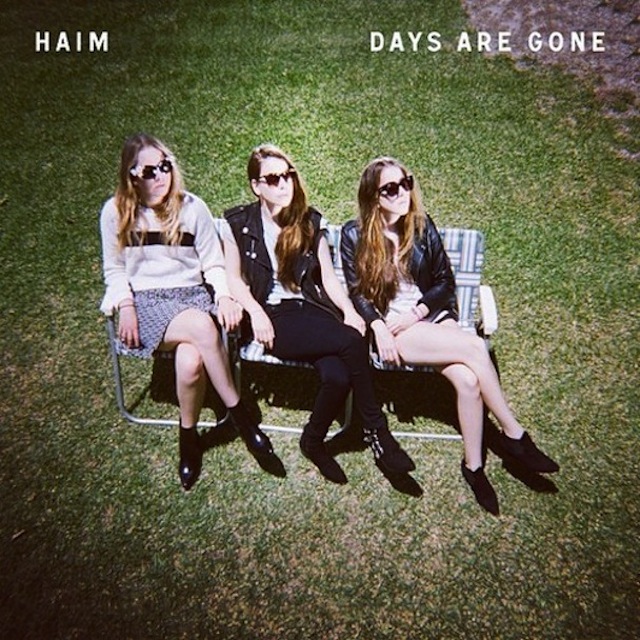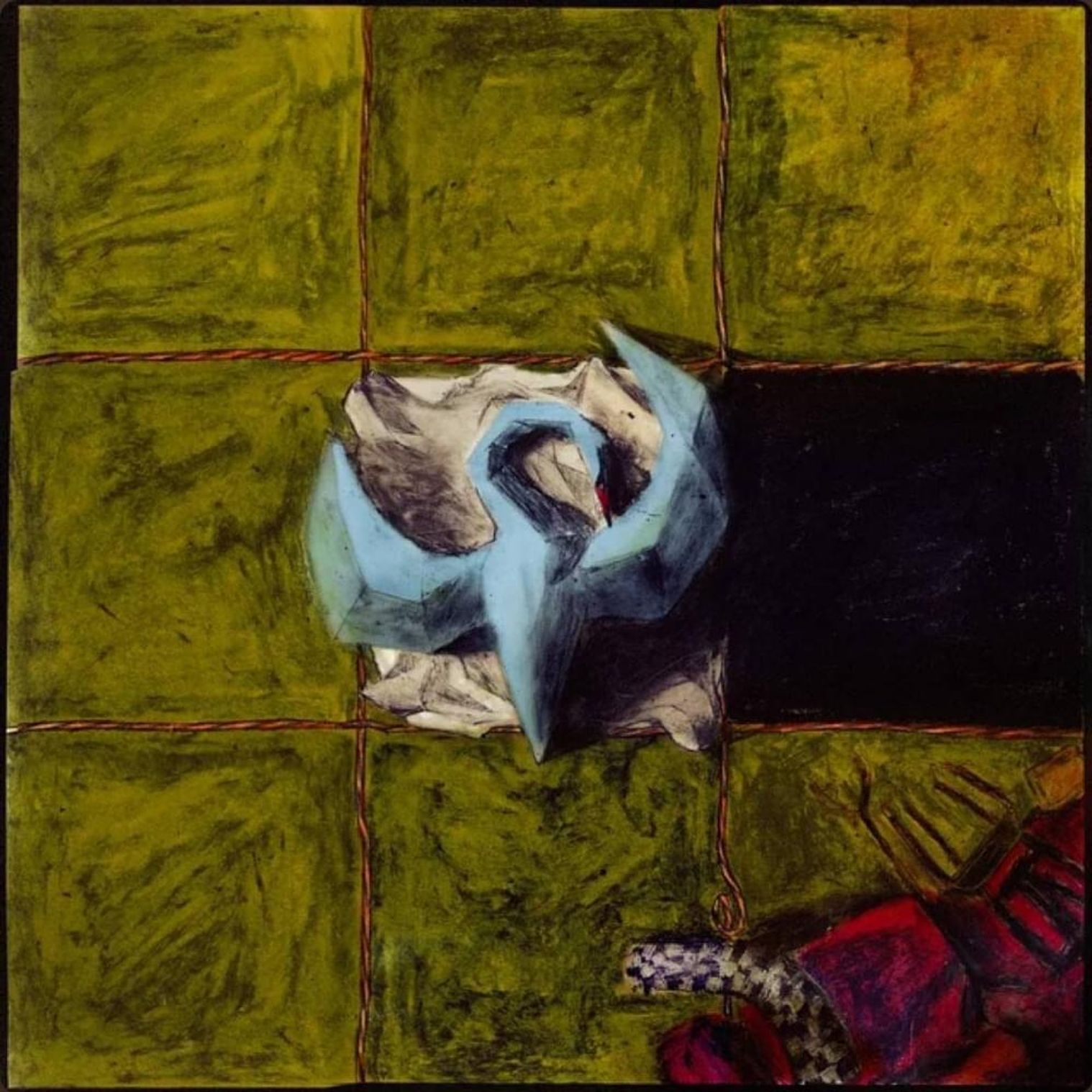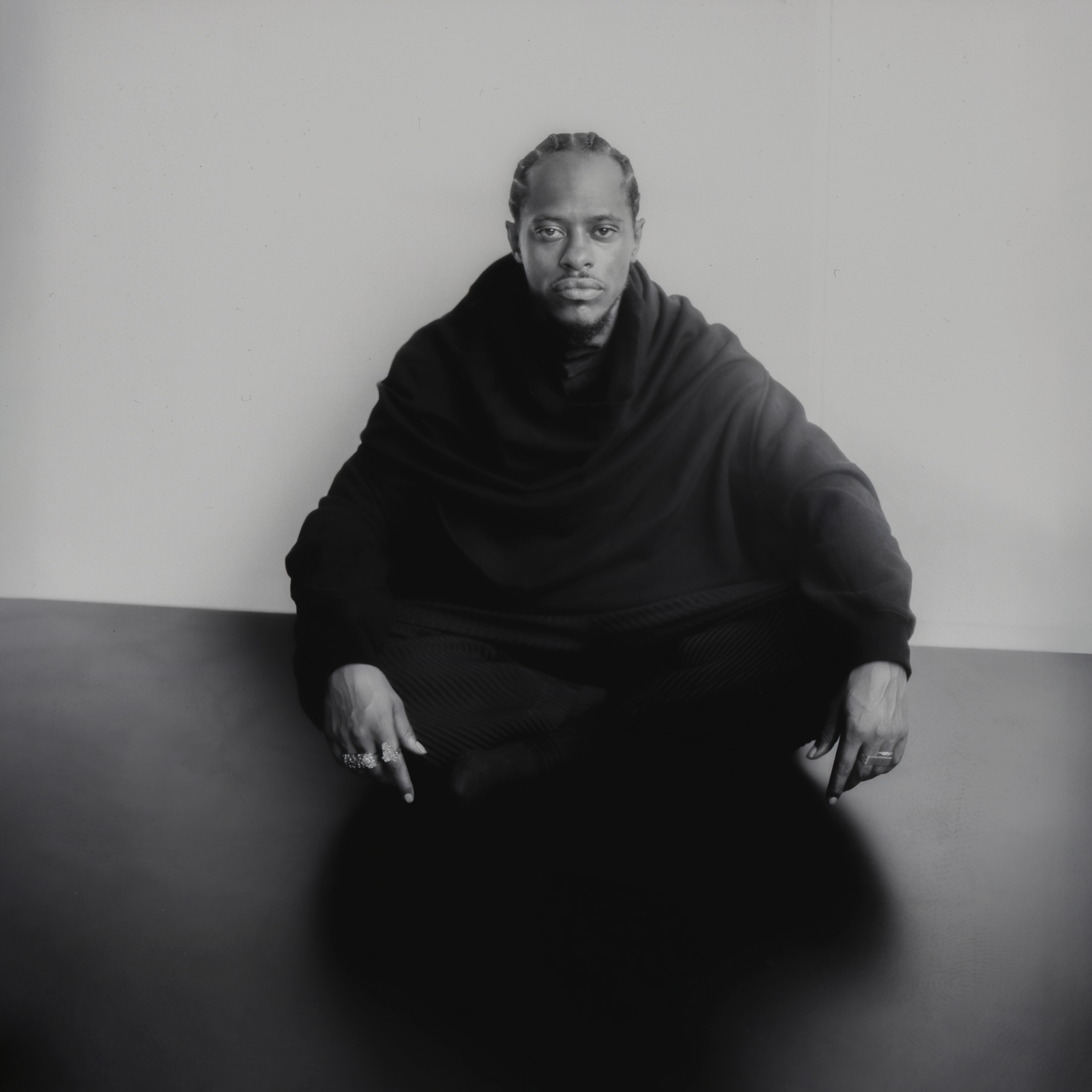I am absolutely outing myself as a lame sentimental dad here, but I can't think about HAIM, the young and ridiculously talented band of California sisters, without imagining how proud their parents must be. I practically explode with pride every time I hear my daughter atonally howl along to the Annie soundtrack, so it's tough to conceive of what the parents of the Haim sisters must be going through. If you watch them onstage, the three sisters, all in their early-to-mid-20s, seem self-possessed and present in ways that much more seasoned bands are still trying to figure out -- and they all seem to genuinely like each other, which is an accomplishment in itself. Now, with their first album, they've made an LP of assured and fizzy pop music, one that sounds utterly of-the-moment without conforming to a single recent trend. There's not one underwhelming song on the whole thing, and the level of shimmering craft is through the roof. They seem to have their sound totally figured out, and even the most forgettable songs have so many tiny swirling hooks that it takes weeks of listening to sniff them all out. I've never met the sisters in HAIM, and I'm proud of them. Their family must be over the moon.
And honestly, those parents get some of the credit. When you're first learning how to write, teachers urge you to find sentences that you like and then to copy those sentences out longhand, so you get get a better idea of how they work, so you can start to internalize those mechanics. The Haim sisters did something similar with music, and they did it from a very early age. The sisters' first band was with their parents, and it was an all-covers thing with the hilarious name Rockinhaim. Alana Haim, the youngest of the three sisters, was four when she started covering these '70s classic-rock songs. On Days Are Gone, you can hear where the Gladwellian 10,000 hours that all three almost certainly put in pay off. All those lessons don't just manifest themselves in the obvious ways, in song-structure or guitar riffs, but in subtler, less showy ways as well: Quiet shades of backing-vocal interplay, perfectly-placed woodblock thunks, basslines so unshowy that you almost don't notice how propulsive they are. And it's also there in they way all three sisters gracefully trade off lead-vocal duties, none of them hogging the frontman spotlight, and in the confidence it must take for all three to pull off totally convincing white-soul vocal showboating when the song calls for it.
It can be tough to describe the music on Days Are Gone because it doesn't fit neatly into any pre-ordained template, and it doesn't have much to do with any internet micro-trend that's currently grubbing attention for itself. There's nothing remotely indie rock about HAIM. They absolutely leapfrogged the whole crusty-clubs circuit, and they'll probably be playing near the top of festival bills by next summer. And their sound is lush and incandescent; it sounds expensive. In a less enlightened time, they'd be written off as corporate-pop anointed ones and dismissed accordingly. And they are corporate-pop anointed ones; their debut album is, after all, a major-label affair. But they also seem loose and unguarded and unforced in ways that would've made them look like complete aliens at, say, this year's VMAs.
The one comparison that HAIM keep drawing is Fleetwood Mac, and that one makes sense; there's plenty of that band's sweeping studio-rat elegance in what they do. But there's other stuff at work, too. "The Wire" and "Don't Save Me" some of the oldies-radio glam-rock shuffle of T. Rex. In Este Haim's full and rubbery basslines and in the widescreen shuffle of their beats, there's more than a hint of Off The Wall-era Michael Jackson. The entire history of '80s soft-rock radio lives in the emotive synth-dissolve of "Go Slow." And plenty of the influences are newer, too. The sisters love to talk about R&B girl groups like TLC and Destiny's Child, and when newer bands talk about those groups, they're usually using the name-checks as a shorthand to describe a sort of lush digital sensuality. But with HAIM, what matters is the vocals themselves -- the way one will take the lead and the other two will answer her parts back, or the ways that the voices will rhythmically push the music around into some unexpected places. And then there's "My Song 5," which is built on a gut-scraping computerized dubstep fuzz-bass but which never does anything obvious with it. And even when those more recent sounds aren't apparent, they never sound like hacky '70s-rock revivalists. Those older sounds, for them, are just a means, never an end unto themselves.
Their sound might be a hard thing to pin down, but it's just impossibly easy to enjoy. Consider "Falling," which sounded great at first and which has now grown on me to the point where I think it's one of the year's fullest and most accomplished pop songs. It's an intricate song: The primly snappy backing vocals, the liquid rhythm section, the expertly-placed wafts of keyboard, the bluesily tossed-off guitar leads. But if you aren't paying close attention, you aren't noticing all the small and minute decisions that go into a song like this. You're letting it wash over you, breathing it in, feeling the way it sighs and flutters. It's a product of countless hours of tinkering and arrangement and studio work, and yet it sounds effortless. So does the rest of the album. It's not an album that tries to push pop music forward or to carve out new subgenre space of its own. Instead, it's an album that uses the entire history of pop music as a playground where none of the equipment is off-limits. They've made an album for road trips and Saturday-afternoon house-cleanings, one where you catch yourself singing along to the whole thing by the fourth listen even if you never made a point of learning the words. Their parents should be proud. So should they.
Days Are Gone is out 9/30 on Columbia.
[videoembed size="full_width" alignment="center"][/videoembed]
[videoembed size="full_width" alignment="center"][/videoembed]
[videoembed size="full_width" alignment="center"][/videoembed]
[videoembed size="full_width" alignment="center"][/videoembed]
Other albums of note out this week:
• Justin Timberlake's disappointing, eager-to-please The 20/20 Experience - 2 Of 2.
• Yuck's frontman-free sophomore joint Glow & Behold.
• Oneohtrix Point Never's queasy synthscape R Plus Seven.
• The Blow's giddy self-titled comeback album.
• The Field's staring-into-infinity dance marathon Cupid's Head.
• The self-titled debut from Ty Segall's stoner-rock power trio Fuzz.
• The Justin Vernon-produced Blind Boys Of Alabama indie-gospel experiment I'll Find A Way.
• Dizzee Rascal's lighthearted grime attack The Fifth.
• Lorde's wise kiwi teenpop debut Heroine.
• Quasi's sprawling double album Mole City.
• Deltron 3030's all-star nerd-rap return Event II.
• The self-titled debut from Tunde Adebimpe's TV On The Radio side project Higgins Waterproof Magic Band.
• Moby's collab-heavy, song-based Innocents.
• Oddisee's psych-rap instrumental record The Beauty In It All.
• Blue Sky Black Death's expansive electronic zone-out Glaciers.
• Polvo's second math-rock reunion album Siberia.
• Blitzen Trapper's psychedelic, shambling VII.
• Dr. Dog's ramshackle bar-rocker B-Room.
• Elf Power's fizzy psych-popper Sunlight On The Moon.
• Melt-Banana's spazzcore comeback Fetch.
• Saint Rich's drifting debut Beyond The Drone.
• Broken Social Scene member Brendan Canning's solo excursion You Gots 2 Chill.
• Gambles' quietly devastating Trust.
• Teen Daze's spacey, ambient Glacier.
• Shark?'s punked-up debut Savior.
• Matt & Kim's remix collection Lightning Remixes.
• RAC's Don't Talk To EP.






